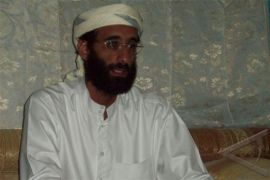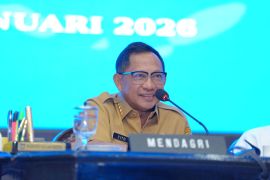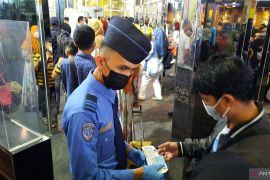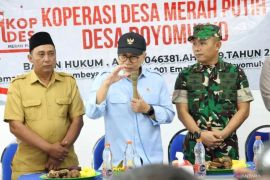Geronimo was an Apache warrior leader who fought for tribal lands against U.S. and Mexican forces in the 19th century and who, like bin Laden, evaded capture for many years. He was held as a U.S. prisoner of war from the time he was captured in 1886 until his death in 1909.
Bin Laden, the al Qaeda leader who masterminded the Sept. 11, 2001, attacks on the United States, was shot in the head by U.S. forces who stormed his compound in Pakistan on Monday after a decade-long manhunt.
It has been widely reported that U.S. forces said "Geronimo EKIA (Enemy Killed in Action)" to confirm bin Laden`s death.
The Senate Committee on Indian Affairs will discuss on Thursday concerns raised over "the linking of the name of Geronimo, one of the greatest Native American heroes, with the most hated enemy of the United States," said the committee`s chief counsel Loretta Tuell.
While the Geronimo codeword for the bin Laden operation has been widely reported, the Pentagon has not confirmed it. Pentagon officials did not immediately respond to requests for reaction to the objections by Native Americans.
"To equate Geronimo or any other Native American figure with Osama bin Laden, a mass murderer and cowardly terrorist, is painful and offensive to our Tribe and to all native Americans," wrote Jeff Houser, chairman of the Fort Sill Apache Tribe, in a letter to President Barack Obama.
Houser said that while he was certain the naming of the operation was based on "misunderstood and misconceived historical perspectives of Geronimo and his armed struggle," he demanded a formal apology from Obama.
"What this action has done is forever link the name and memory of Geronimo to one of the most despicable enemies this country has ever had," he wrote.
"Unlike the coward Osama bin Laden, Geronimo faced his enemy in numerous battles and engagements," Houser said.
Geronimo is also a motivational catchcry of U.S. Army paratroopers after a member of the first experimental parachute unit yelled "Geronimo" in 1940 as he leaped from a plane, inspired after watching a 1939 movie about the Apache warrior, historians said.
Chester Rodriguez, 55, an Apache descendant of Geronimo in Bisbee, Arizona, said it was not right to use Geronimo`s name for the bin Laden operation.
"Geronimo wasn`t a terrorist, he was a good man, he spoke the truth about about the white man and what they did to his people ... He wasn`t like that (bin Laden) at all," said Rodriguez, whose Apache name is Eagle Bone.
The Onondaga Nation Council of Chiefs in New York state said that using Geronimo as the code name for the bin Laden mission was "reprehensible."
"To compare him to Osama bin Laden is illogical and insulting," the Council of Chiefs said in a statement.
"The name Geronimo is arguably the most recognized Native American name in the world, and this comparison only serves to perpetuate negative stereotypes about our peoples. The U.S. military leadership should have known better," they said.
The U.S. Senate committee needs to look at the prevalence in American society of "these inappropriate uses of Native American icons and cultures," said Tuell.
"The impacts to Native and non-Native children are devastating," she said.
The U.S. government recognizes 565 Native American tribes whose members lived on the land for centuries before the United States, Canada and Mexico existed, speaking their own languages and following beliefs centered on the natural world.
But there has long been problems with the use of American Indian symbols, particularly by sports teams. In 2009 the Supreme Court rejected an appeal by six American Indians in their long-running legal challenge of the Washington Redskins` football team name, which they find racially offensive. (B002/K004)
Editor: Kunto Wibisono
Copyright © ANTARA 2011









